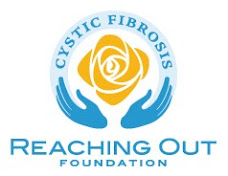
Milk, Calcium and CF:
True or False?
by Liz Revilla, MS, RD, CSP
(Adapted with permission from Terri Schindler, MS, RD)
Drinking milk increases mucus production and also makes mucus thicker.
False. Milk is an emulsion (drops of one liquid are dispersed in another liquid), which can create a feeling in the mouth which may be mistaken for mucus. Milk does not increase mucus production or make it thicker. It is safe for individuals with CF to consume.
The calcium in milk (or in foods) can increase your risk of developing kidney stones.
False. The calcium in milk binds with a salt, called oxalate, in the intestine. This binding actually reduces the risk of kidney stones.
Milk is a good source of vitamin D.
True. Milk is an excellent source of vitamin D, as well as calcium and protein. Not all dairy products contain vitamin D, however. For example, ice cream, cheese, and some brands of yogurt are not fortified with vitamin D.
Because milk is a beverage, it does not require enzymes.
False. Milk contains protein, fat and complex carbohydrates. It is a good idea to take a snack dose of enzymes when you drink milk.
You cannot tell if you are getting enough calcium in your diet by checking the level of calcium in your blood.
True. Your body will take calcium from your bone, if you do not getting enough calcium in your diet. Calcium controls muscle contractions, including the heart muscle, so your body will take calcium from your bone to keep your blood calcium level normal. Your dietitian can help you figure out if you are getting enough calcium from your diet.
References:
Review article: Milk Consumption Does Not Lead to Mucus Production or Occurrence of Asthma. Wunthrich et al. Journal of the American College of Nutrition, Vol. 24, No. 6, 547S-555S (2005).
Curhan G, Willett WC, Rimm E, Stampher MJ. A prospective study of dietary calcium and other nutrients and the risk of symptomatic kidney stones. N Engl J Med 1993;328:833-8
by Liz Revilla, MS, RD, CSP
(Adapted with permission from Terri Schindler, MS, RD)
Drinking milk increases mucus production and also makes mucus thicker.
False. Milk is an emulsion (drops of one liquid are dispersed in another liquid), which can create a feeling in the mouth which may be mistaken for mucus. Milk does not increase mucus production or make it thicker. It is safe for individuals with CF to consume.
The calcium in milk (or in foods) can increase your risk of developing kidney stones.
False. The calcium in milk binds with a salt, called oxalate, in the intestine. This binding actually reduces the risk of kidney stones.
Milk is a good source of vitamin D.
True. Milk is an excellent source of vitamin D, as well as calcium and protein. Not all dairy products contain vitamin D, however. For example, ice cream, cheese, and some brands of yogurt are not fortified with vitamin D.
Because milk is a beverage, it does not require enzymes.
False. Milk contains protein, fat and complex carbohydrates. It is a good idea to take a snack dose of enzymes when you drink milk.
You cannot tell if you are getting enough calcium in your diet by checking the level of calcium in your blood.
True. Your body will take calcium from your bone, if you do not getting enough calcium in your diet. Calcium controls muscle contractions, including the heart muscle, so your body will take calcium from your bone to keep your blood calcium level normal. Your dietitian can help you figure out if you are getting enough calcium from your diet.
References:
Review article: Milk Consumption Does Not Lead to Mucus Production or Occurrence of Asthma. Wunthrich et al. Journal of the American College of Nutrition, Vol. 24, No. 6, 547S-555S (2005).
Curhan G, Willett WC, Rimm E, Stampher MJ. A prospective study of dietary calcium and other nutrients and the risk of symptomatic kidney stones. N Engl J Med 1993;328:833-8




No comments:
Post a Comment